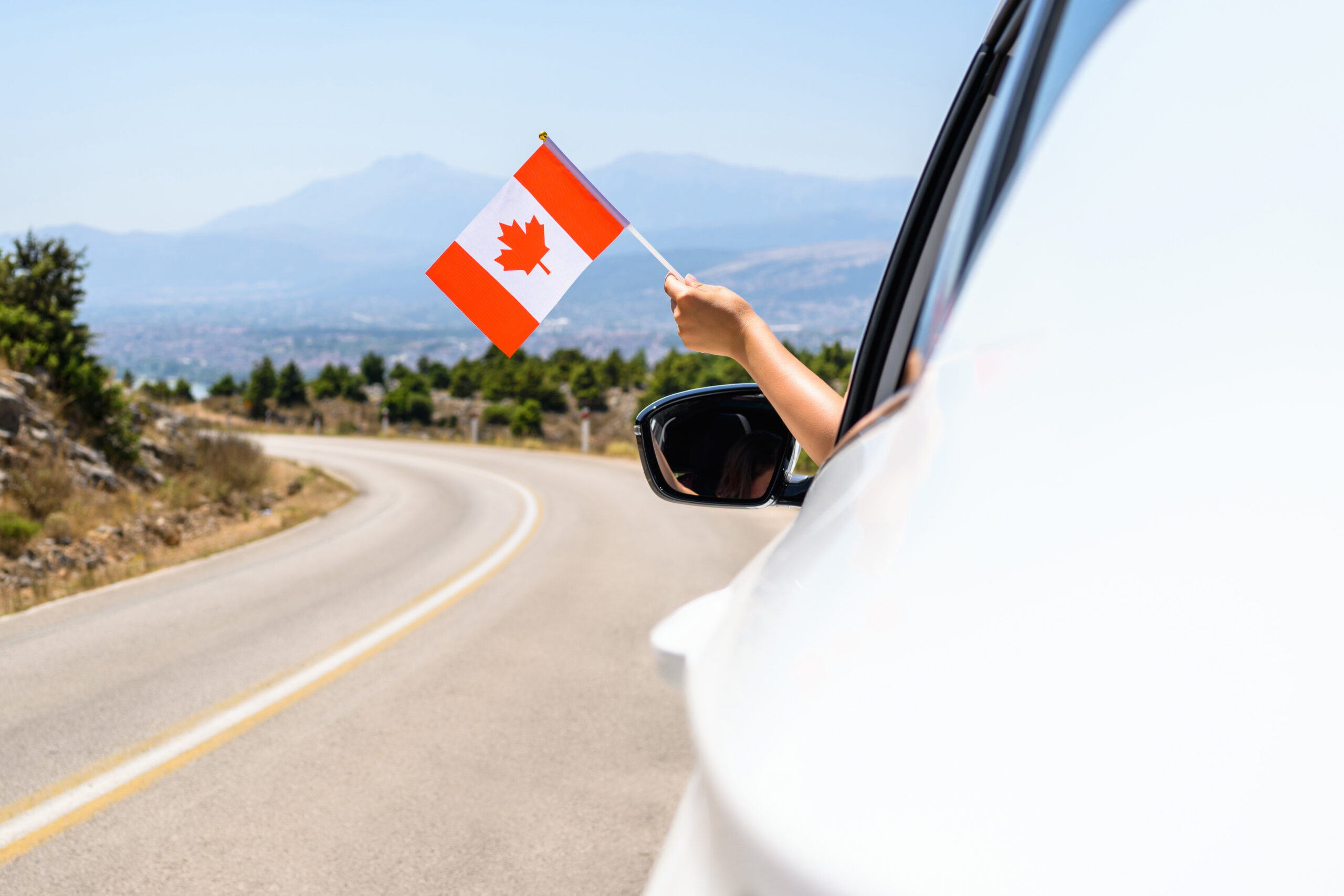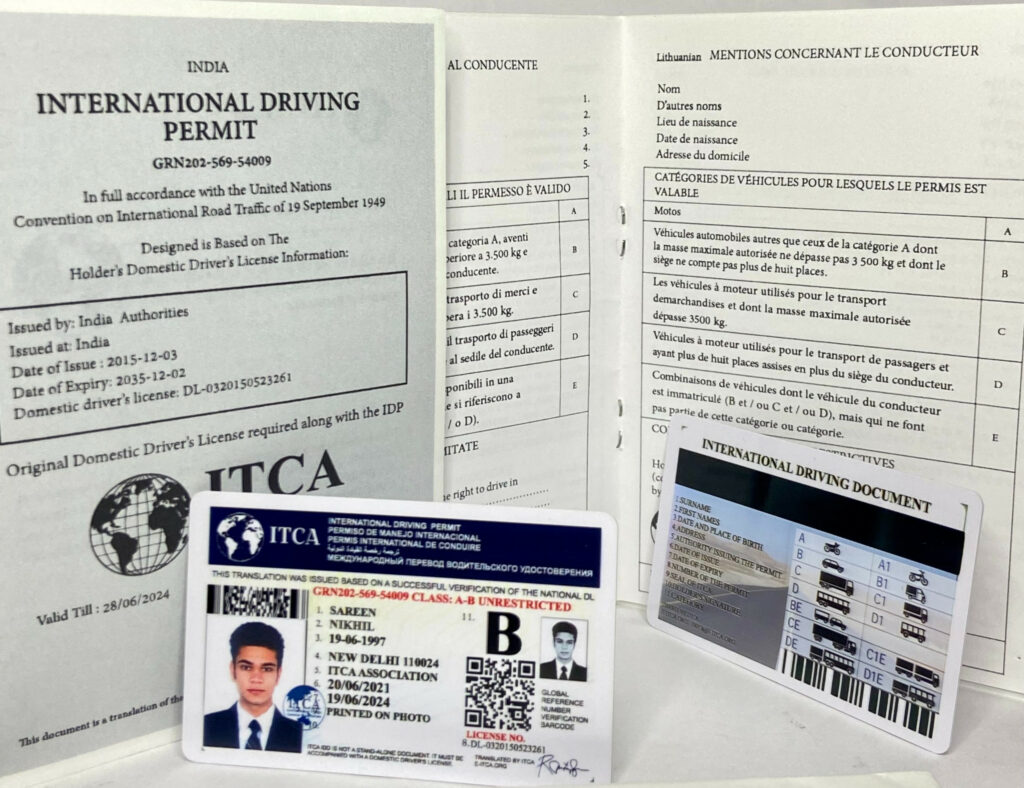Yes. Insurance for a single day is available.
Renting a Car in Canada: Essential Car Hire Tips for Your Canada Trip
PUBLISHED ON Mar, 17 2024

Gearing Up for Your Canadian Adventure
Renting a car in Canada can unlock a world of opportunities for your visit. Whether you’re planning to scale the rocky terrains of the West Coast or cruise through the charming streets of Quebec City, having your own set of wheels provides unparalleled freedom and convenience.
Deciphering the Rental Car Landscape in Canada
Understanding the car rental market in Canada is crucial for finding a deal that’s as pleasant as the scenic routes you’re about to explore. With numerous rental agencies dotting the country, you have a plethora of choices, from international chains to local outfits that offer a more personalized touch.
When searching for the perfect rental, it’s important to keep in mind that prices can vary widely. Factors that affect cost include the model of the vehicle, the rental duration, and even the season during which you’re visiting. For instance, you might find higher rates during peak tourist times or holidays.
To ensure you’re getting the best price, it’s wise to compare rates from different companies. Don’t hesitate to check both the large, well-known rental agencies and smaller, local companies. Sometimes, the latter can offer more competitive rates and insider tips about navigating the Canadian landscape.
Remember to read the fine print and ask about any additional fees that might not be immediately obvious. This will save you from unexpected costs and allow you to budget your trip more effectively.
Comparison Table of Rental Car Prices in Canada:
We compared the price for 6 days large size car rental from July 1st until July 7th, 2024.
Here’s a snapshot of car rental costs from several major companies at four airports: Toronto, Vancouver, Calgary and Montreal International*.
| Rental Company | Toronto Int. Airport (YYZ) | Vancouver Int. Airport (YVR) | Calgary Int. Airport (YYC) | Montreoal Int. Airport (YUL) |
| Budget | CAD $143.48 | N/A | CAD $180.55 | CAD $152.95 |
| Dollar | CAD $110.73 | CAD $144.31 | CAD $143.76 | CAD $143.47 |
| Sixt | CAD $164.91 | CAD $223.35 | N/A | N/A |
| Thrifty | CAD $110.73 | CAD $144.31 | CAD $143.76 | CAD $143.47 |
*These costs are provided for comparison purposes only
Essential Legal Requirements for Car Rental
Before you can hit the open road in Canada, there are some essential legal requirements you’ll need to fulfil when renting a car:
- Age Criteria: Generally, you must be at least 21 years old to rent a car. However, drivers under 25 might face additional young driver surcharges.
- Valid Driver’s License: Your driving license must be valid for at least 6 months beyond your rental period. It should be in English or French, or accompanied by an International Driver’s Permit if in another language.
- Credit Card in Driver’s Name: A credit card is required for the security deposit; the name on the card should match the driver’s name.
- Child Seats: For those traveling with small children, the law mandates using child seats for kids under 18 kg (40 lbs). Rental companies can provide these upon request.
These requirements ensure that you’re ready and legally covered to navigate Canada’s roads. Always double-check with your rental agency beforehand to make sure there aren’t additional local mandates you’ll need to adhere to.

Illustration of credit card coverage
Understanding Canadian Driving Regulations
According to recent statistics, in 2021, the number of motor vehicle fatalities was 1,768; up 1.3% from 2020 (1,746). When you take the wheel in Canada, it’s essential to understand and abide by the local driving laws to ensure your journey is safe and legal. Here’s what you need to keep in mind:
- Drive on the Right: In Canada, you drive on the right-hand side of the road, similar to the United States.
- Seat Belt Laws: It’s mandatory for all passengers to wear seat belts. Ensure everyone is buckled up before you begin your journey. The prevalence of seatbelt use has contributed significantly to reducing accidents and fatalities on Canadian roads. According to Transport Canada, strict seat belt laws in Canada have been associated with a 50% decrease in fatality and a 55% decrease in serious injury. Stay buckled and stay safe!
- Child Safety: Children should be secured in an appropriate child seat that meets Canadian safety standards.
- Speed Limits: Stick to posted speed limits, which vary by area. For example, city driving is usually restricted to 37-44 mph (60-70 kph), while multi-lane highways allow speeds up to 75 mph (120 kph).
- Turning on Red: In most parts of Canada, right turns on red lights are allowed after making a complete stop and ensuring the way is clear.
- Mobile Phones: It’s illegal to use a hand-held mobile phone while driving. Use a hands-free device if you need to take a call.
- Gas Stations: Most are open 24/7 on highways, but it’s always good to check in advance and keep your tank filled for longer journeys.
By staying informed about these rules, you can drive confidently and enjoy the breathtaking scenery without any hitches.
Budgeting Your Ride
Tips for Securing Competitive Rates
Securing competitive rates on car rentals in Canada is about timing and a bit of strategy. Here’s how to get the best bang for your buck:
- Book in Advance: Generally, the earlier you book, the better the rates. Last-minute bookings can be pricey, especially during peak seasons.
- Price Comparison: Use online comparison tools to see multiple offers at once. This helps you to navigate the best deals available.
- Loyalty Programs: Join loyalty programs offered by rental companies. They often provide perks like discounts and free upgrades.
- Pay Now Options: Some companies, like Budget, offer a discount when you pay upfront. This can save you up to 30% off base rates.
- Avoid Airport Pickups: If possible, choose a rental location outside of the airport. They often have lower fees and taxes than airport-based agencies.
Renting a car in Canada can be much simpler and cheaper than you thought – the sophisticated price comparison engines for car rental rates are automatically updated with all prices for all major car rental companies in Canada that are considered reliable and provide customer service in English. By using the price comparison engine you can find the cheapest prices for a variety of models. Simply fill out the form, select Iceland in the country field, then select the city in Canada where you would like to get the rental car – Toronto or Calgary, Montreal, or other cities in Canada. Enter the dates you are interested in booking a car rental in Canada and click “Search”.
By using these tips, you might just snag that sweet deal that turns a good trip into a great one, all without breaking the bank.
When to Book: Timing Your Rental for Best Deals
Booking your rental car at the optimal time can make a significant difference in cost. Here’s what you should consider when timing your rental for the best deals:
- Off-Peak Savings: Aim for the shoulder seasons – spring and fall – when demand is lower. Prices tend to be far more competitive outside the summer and winter holidays.
- Monitor Rates: Set up Price Alerts on various rental websites; these will notify you when prices drop, allowing you to book when rates are at their lowest.
- Advance Bookings: Typically, booking at least two to three weeks in advance can secure lower rates. As the pick-up date approaches, prices often climb.
- Weekday vs. Weekend: Weekdays may offer better rates compared to weekends due to lower demand for rentals.
- Length of Rental: Sometimes, renting for a longer period than needed (like a week instead of five days) oddly results in lower prices.
Keep your eyes peeled for special promotions and deals, especially if you can pay upfront. They’re usually announced on rental companies’ websites, so it’s worth checking them out before you finalize your booking.
Choosing the Right Vehicle for Your Voyage
Choosing the right vehicle for your Canadian trip hinges on the kind of terrain you’ll be facing and your personal comfort requirements.
- Economy Cars: Perfect for city tours and well-paved road trips, economic vehicles like the VW Jetta offer great fuel efficiency and are easier on the budget, costing about 45-50 CAD per day.
- SUVs and 4x4s: These are ideal for rugged terrains, backcountry roads, or winter conditions. SUVs provide additional safety with their 4WD capability on less stable roads, especially in the northern parts of Canada.
- Minivans and Large SUVs: When traveling with a group or family, a larger vehicle such as a 7-12 seater will ensure everyone’s comfort, plus ample space for luggage and equipment.
- Specialty Vehicles: For those planning to explore areas with specific requirements, like RV Parks or camping sites, specialty rentals like campervans or RVs could provide a home-on-wheels experience.
No matter the trip or the season, Canada has a car rental option to match your needs. Assess your itinerary, consider both passengers and cargo, and balance this against your budget for an optimal rental car choice.
The type of car you rent (size and luxury features) can significantly affect what you pay.
Budget, for instance, offers the following car options at Toronto, Canada International Airport. You’ll notice a significant price jump from the standard to the full-size category, and another significant jump for the special and luxury categories.
| Type | Capacity | Example | Cost per Day |
| Small | 4 seats, 1 large bag, 1 small bag | Hyundai Accent | CAD $ 60.84 |
| Medium | 5 seats, 1 large bag, 1 small bag | Ford Focus | CAD $ 61.76 |
| Large | 5 seats, 2 large bags, 1 small bag | Ford Taurus | CAD $60.65 |
| Premium | 5 seats, 2 large bags, 1 small bag | Ford Crown Victoria | CAD $82.49 |
| SUV | 5 seats, 3 large bags | Ford Escape | CAD $77.25 |
Special Considerations for Seasonal Travel
Traveling in Canada during different seasons requires special considerations to ensure a safe and comfortable journey. Here’s what to keep in mind:
- Winter Readiness: Winter in Canada can be harsh, with temperatures dropping well below freezing, especially in northern regions. Daytime temperatures range from -10°C to -20°C, but can plummet even lower. Snowfall is common across much of the country, particularly in central and eastern regions. If you’re driving during the snowy months, ask about winter tires – they provide better traction and are often legally required in provinces like Quebec. Also, inquire if your rental car includes an ice scraper, snowbrush, and if they offer 24-hour roadside assistance.
“People are scared of the Canadian winter, but man, it’s the best time to come. It will shock you. You’ll be born again.” – Danny Forest
- Summer Trips: Summer in Canada is generally pleasant, with daytime temperatures ranging from 20°C to 30°C, although regions like the Pacific coast may experience milder temperatures. Precipitation levels vary across the country, with some areas experiencing more rainfall than others. Summer is peak season with higher rental rates. Book well in advance, especially for popular vehicles like convertibles for those scenic drives through the Rockies or along the coasts.
- Spring and Fall: Spring and fall bring cooler temperatures, with daytime temperatures ranging from 5°C to 15°C. These season are characterized by vibrant foliage, especially in regions like Ontario and Quebec. Rainfall becomes more frequent as fall progresses. These seasons can have unpredictable weather with a mix of sunny days and snowfall. Ensure the rental vehicle has all-season tires and confirm if additional equipment like GPS is offered for navigating potentially tricky road conditions.
- RV Rentals: If an RV is your vehicle of choice, aim for the warmer months between late May and early September. Some rentals may not have adequate heating for the colder months, making for an uncomfortable experience.
By factoring in these seasonal considerations, you’ll be better equipped for a smooth and enjoyable Canadian road trip, regardless of when you choose to travel.
Covering All Bases: Insurance and Safety
Demystifying Rental Car Insurance Options
Navigating rental car insurance options can be complex, but it’s crucial for peace of mind on the road. Here’s what’s typically available through rental agencies:
- Collision Damage Waiver (CDW): CDW limits your financial liability for damage to the rental car. However, it’s not technically insurance, and it often doesn’t cover damages to tires or windscreens.
- Liability Insurance: This coverage is usually included in the rental price and covers damage or injury to third parties.
- Personal Accident Insurance (PAI): PAI covers medical costs for the driver and passengers in the event of an accident.
- Personal Effects Coverage (PEC): Protects against theft or damage to personal property while it’s in the rental car.
- Supplemental Liability Insurance (SLI): Increases your liability coverage beyond the basic level provided by the rental agency.
The basic CDW does not typically cover certain types of damage, like windscreens, tyre punctures, or undercarriage damage. If you want more comprehensive coverage, Full Protection (Super CDW) packages can offer savings by bundling Excess Waiver, Roadside Assistance, and zero deductible excess.
Canada car hire excess cover, also referred to as standalone car hire insurance, helps renters by reducing the claim payment amount in the event of an insurance claim. The excess amount for rental cars in Australia typically ranges from $3,350 to $9,000, which varies depending on the rental company and vehicle type. Understanding these options ensures you’re adequately covered during your trip.
While SCDW may double your rental cost, CarInsuRent’s car hire excess insurance for Canada stands out as a favorable choice for several reasons:
- Comprehensive Coverage: CarInsuRent offers extensive coverage for car hire excess, providing you peace of mind. This insurance covers expenses related to windscreen damage, theft, misfuelling, breakdown, and towing, up to a generous limit of US$ 4,500.
- Cost Savings: By opting for CarInsuRent’s Car Hire Excess Insurance, you can avoid overpaying at car hire desks abroad. Booking this insurance online before traveling ensures competitive rates and helps save money in comparison to purchasing excess coverage directly from rental companies.
- Ease of Booking: The process of booking our Car Hire Excess Insurance is straightforward and can be conveniently completed online before embarking on the trip. This simplicity ensures a hassle-free experience for you, allowing you to focus on enjoying their journey.
- Positive Reviews: CarInsuRent’s Car Hire Excess Insurance has garnered positive reviews from satisfied customers, highlighting its reliability and effectiveness in providing coverage during car rentals abroad. Such testimonials from previous users attest to the quality and value of this insurance option.
Compare and Buy Car Rental Insurance for Canada
Get StartedStaying Safe on Canadian Roads
Safety on Canadian roads is paramount, whether winding through mountain passes or cruising the Trans-Canada Highway. Here are vital tips to keep you secure:
- Adhere to Speed Limits: Keep your eyes on posted signs and stay within the legal speed limits, especially in unfamiliar areas.
- Animals on the Road: Be vigilant for wildlife, especially in rural or forested regions; they can be unpredictable and cause accidents.
- Seasonal Gear: Ensure your vehicle is equipped with the right tires for the season—winter tires can be a lifesaver in snowy conditions.
- Stay Connected: Have a mobile phone with a Canadian SIM card or roaming options for emergency situations, and store key contact numbers.
- Rest and Refresh: On long drives, take regular breaks to stay alert. Driver fatigue is a significant hazard, so switch drivers if possible or stop for the night.
By maintaining awareness and being prepared, you can enjoy a road trip that’s memorable for all the right reasons.
Crossing Borders: International Rentals Into Canada
What to Know About Cross-Border Rentals
Embarking on a trip that takes you across borders from the U.S. into Canada? Here’s what to keep in mind for a smooth journey:
- Rental Policy: Verify the rental company’s policy on cross-border travel. Some might restrict or have specific conditions for taking vehicles into Canada.
- Insurance Coverage: Ensure your insurance, whether it’s through the rental company, your personal policy, or credit card, extends across the border.
- Return Policy: Understand the terms of returning the vehicle, especially if you plan to leave it in a different country.
- Documentation: Have all required documents on hand, including your passport, driver’s license, rental agreement, and proof of insurance.
By being well-informed and prepared, cross-border road trips can be an exciting part of your travel itinerary without any unnecessary complications.
Preparing Documentation for Hassle-Free Travel
Having the right paperwork is essential for a smooth rental experience and compliance with regulations. Be ready with the following documents:
- Driver’s License: A valid driver’s license from your home country is a must. Ensure it will remain valid throughout your travel period.
- Credit Card: Most rental agencies require a credit card in the name of the primary driver for a security deposit.
- Identification: A valid passport or another form of government-issued ID that matches the name on your rental and driving documents.
- Rental Confirmation: Bring your booking confirmation, which should include the rental rate, reservation details, and any prepaid services.
- Insurance Documents: If you’re using your own insurance or insurance provided by your credit card, bring proof of coverage.
By organizing these documents well in advance, you’ll ensure quick service at the rental counter and more time exploring the beauties of Canada.

International Driving Permit
Enhancing Your Experience with Extras
Optional Features Worth Considering for Your Rental
Enhancing your car rental with optional extras can elevate your driving experience from good to great. Consider these add-ons:
- GPS Navigation: Navigate the wide expanse of Canada with ease and reduce the chances of losing your way.
- Child Seats: Ensure the safety of your little ones and meet legal requirements with the right child seating.
- Wi-Fi Hotspot: Stay connected on the go, which can be especially handy for longer trips where you might encounter areas with poor mobile coverage.
- Ski Racks: If you’re heading to the slopes, transporting your gear is made easier with a secure ski rack.
- Additional Driver: Sharing the driving responsibilities can make for a more relaxing and enjoyable trip, especially on longer drives.
While these features add to your overall costs, the benefits they offer can be worth the investment for your comfort and convenience on the road.
On the Move: Picking Up and Returning Your Rental
Smooth Transitions at Popular Pickup Locations
Picking up your rental car in Canada should be hassle-free, especially at popular locations equipped to handle a high volume of travelers. Here’s how you can ensure a smooth transition:
- Preparation is Key: Before arriving, ensure you have all necessary documentation – driver’s license, credit card, and confirmation number at the ready.
- Airport Rentals: At airports, follow signs to the designated car rental area. It’s typically separate from the baggage claim, with shuttles often available for convenience.
- City Locations: Urban centers have multiple pick-up points. Choose a location central to your accommodation to avoid navigating through heavy traffic immediately upon arrival.
- Communication: Keep the rental agency informed about your arrival, especially if your flight is delayed. This helps secure your booking and potentially expedites the pick-up process.
By being prepared and communicating effectively with the car rental agency, you can avoid delays and start your Canadian adventure smoothly.
Avoiding Common Pitfalls Upon Return
Returning your rental car should be just as seamless as picking it up. To sidestep any common pitfalls, consider the following:
- Fuel Policy: Refill the tank before returning the vehicle to avoid inflated fuel charges – check your rental agreement for the specific policy.
- Timely Return: Late returns can incur hefty fees. Aim to arrive during business hours and budget extra time for unexpected delays.
- Inspect Vehicle: Before leaving the rental lot, do a quick walk-around to inspect for any new damages that could be attributed to you after drop-off.
- Gather Your Belongings: Double-check the car for personal items, especially in common oversight areas like glove compartments and trunk spaces.
- Receipt Confirmation: Always get a final receipt – it’s your proof of return condition and timely drop-off, helping to avoid disputes later on.
Following these steps will ensure you’re not faced with unplanned charges or stressful miscommunications at the end of your journey.
Compare and Buy Car Rental Insurance for Canada
Get StartedFAQ: Frequently Asked Questions about Renting a Car in Canada
What Is the Minimum Age Requirement for Car Rentals in Canada?
The minimum age to rent a car in Canada is typically 21 years. However, some provinces like Saskatchewan and Quebec allow rentals from age 18. Do note that renters under 25 may incur a ‘young driver surcharge’ due to higher associated risk. Always check with the car rental agency for any age-related policies before booking.
Can I Drive My Rental Car Into the United States?
Yes, you can usually drive your rental car from Canada into the United States, but it’s crucial to check your rental agency’s cross-border policy first. Some may require prior notification, additional documentation, or restrict travel to specific states. Always confirm with your rental company before planning a cross-border trip.
What Are the Payment Options for Car Rentals in Canada?
Car rentals in Canada typically require a major credit card in the driver’s name for payment and deposit. Some agencies might accept debit cards, but they may require proof of return travel and extra identification. Cash payments are less commonly accepted. Always verify payment methods with your rental agency ahead of time.
Do I Need an International Driver’s Permit to Rent a Car in Canada?
If your driver’s license is not in English or French, you may need an International Driver’s Permit (IDP) to rent a car in Canada. The IDP must accompany your valid foreign driver’s license. Check with your rental agency to ensure you have all required documents before you arrive.
Travel Tips and Guides
Frequently Asked Questions (FAQ)
No. We provide a single journey plan. You are covered from the time you pick up the rental car up to the time you return it or on the last date written on your Certificate of Insurance, whichever comes first.
No. You should purchase a policy before starting your travel.
Find the answers you’re looking for to the most frequently asked car hire insurance questions as well as other questions relating to our products and services.




